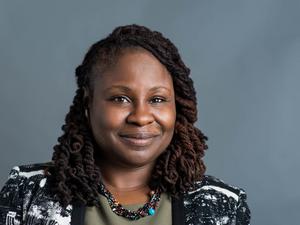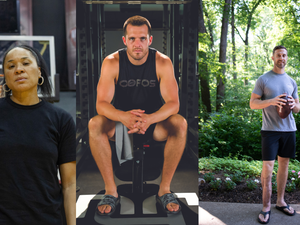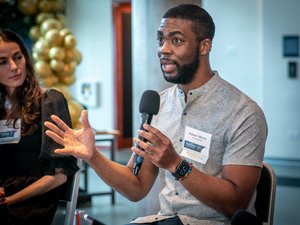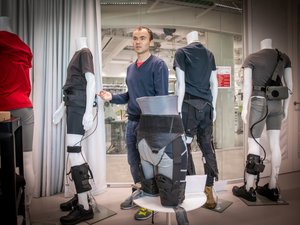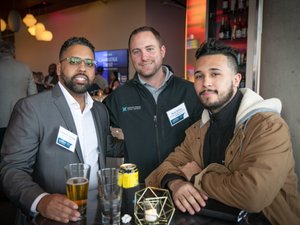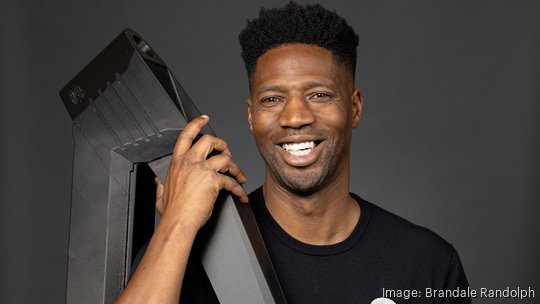
Before co-founding and leading 1854 Cycling Co., Brandale Randolph was a poverty advocate and nonprofit leader in Texas. He had also been a commodities broker and graduated from the Wharton School at the University of Pennsylvania.
When he moved to Framingham, Massachusetts, Randolph said he wanted to create jobs and personally hand paychecks to people who were impacted by poverty.
Back in 2016 when Randolph was thinking about how to accomplish that goal, a livable wage was considered to be about $17 per hour in Massachusetts. Soon after learning this, he saw an article noting that $17 per hour also happened to be the starting wage for bicycle mechanics.
“That’s how it all started,” Randolph said. “We wanted to teach formerly incarcerated women to become bicycle mechanics.”
That is where 1854 Cycling began its work seven years ago.
The company’s name comes from a moment in Massachusetts abolitionist history. On July 4, 1854, the Anti-Slavery Society met in Framingham to protest the celebration of the country’s independence while Americans still practiced slavery. Since its founding, 1854 Cycling has gone through a few evolutions, from building single-speed bikes to making an e-bike designed to be used by police departments. Today, the company is demoing its e-bike for the Boston Police Department as it prepares to begin mass production and delivery later this year.
“(Police brutality) is a real big issue for me personally and the communities that I’m trying to help. I wanted to take it from a very unorthodox way, which is how do we first work with law enforcement to create a bridge between them and communities,” Randolph said.
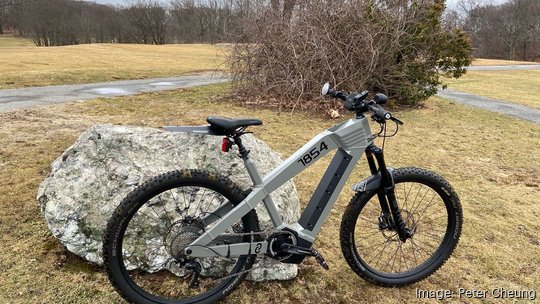
Going electric
Before focusing on serving law enforcement, Randolph’s team was mainly building single-speed bikes out of a space in Framingham. Randolph said they moved out of that space in 2021 during the pandemic because it wasn’t well ventilated or suitable for working in these conditions. Randolph said they also found that the margins on building and selling single-speed bikes wouldn’t allow them to scale like they wanted.
The company had begun to think about building more technologically advanced e-bikes in 2018 when they took part in MassChallenge. The program paired them with Draper, a Cambridge engineering innovation company. Randolph said they built an e-bike model and took it to a trade show in 2019.
When the pandemic hit and global supply chains were essentially shut down, 1854 Cycling began focusing on building an e-bike that was designed and engineered 100% by their team and with parts sourced domestically. The bikes are now put together in a space in Cambridge. Randolph said they’re looking at moving into space in Hyde Park.
“We’re focused on making sure that we can support the next 10 years, because for us it’s not really about the location as much as staying, because we really want to help people break the cycle of poverty,” Randolph said.
1854 Cycling is entirely bootstrapped. Randolph said he didn’t realize when he started the company that Black founders faced such barriers accessing venture funding in the Bay State. In 2022, Black founders raised just 0.56% of the venture capital that went to Massachusetts companies. Randolph said he felt like potential investors didn’t have faith in him and his team to get the company this far.
“The beautiful thing is that we can remain a majority Black-owned company and we can finance ourselves based on contracts from municipalities,” Randolph said.
An 'unorthodox' approach to changing policing
Randolph said he sees bikes as a way to build connections between police officers and the communities they serve. People view police vehicles as “bullet-proof tanks” and associate them with arrests, he said. A bike makes an officer more approachable.
Randolph also thinks it’s important for police officers to be able to slow down and see the communities they are serving.
“Sometimes when you’re driving by so fast, you don’t actually see the faces of the people who you’re serving,” Randolph said. “If you’re on the bike, it’s more of a human-to-human connection.”
Randolph said they haven’t yet signed a contract with the Boston Police Department for the e-bikes. Today’s demo is about finding the right size bike to fit the majority of officers and nailing down the different technological needs. The bikes feature a screen on the handlebars that can access tools like a cloud-connected web browser and police servers and records. But, Randolph said different units have different requirements regarding the features they can have, such as GPS tracking.
Once 1854 Cycling nails its e-bikes business, don’t expect them to stop there. Randolph said his vision is to eventually move into motorcycles next.
“A Black-owned motorcycle company is kind of the dream,” Randolph said. “We’ve grown from a bunch of people who can learn to repair a bike to a motorcycle company. That’s a jump.”
Sign up for The Beat, BostInno’s free daily innovation newsletter. See past examples here.
